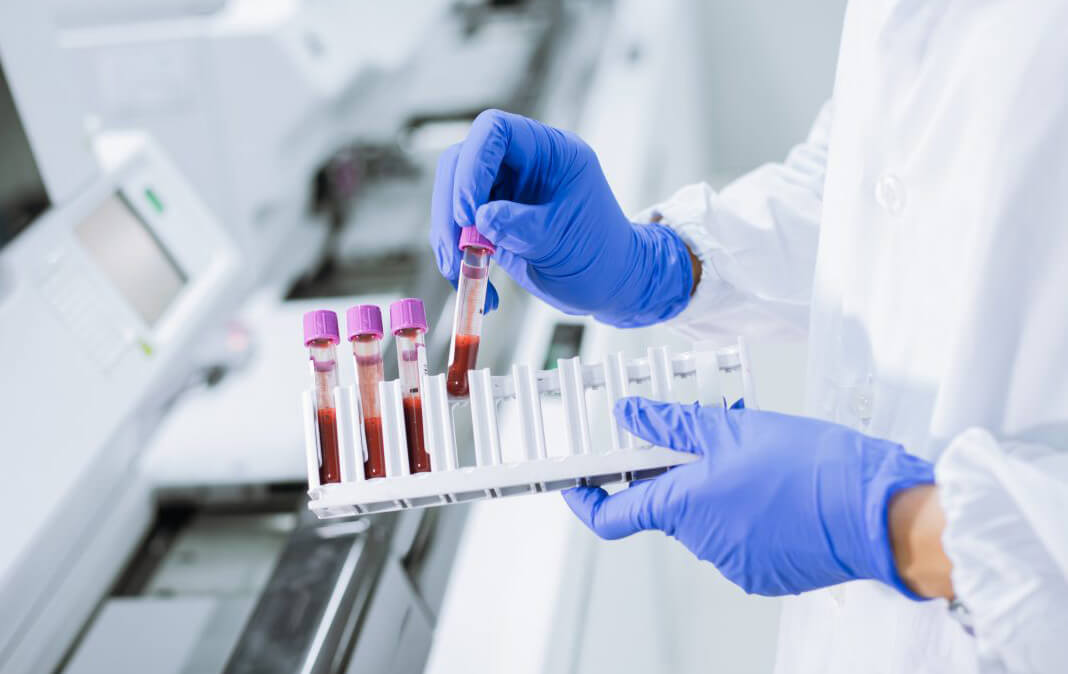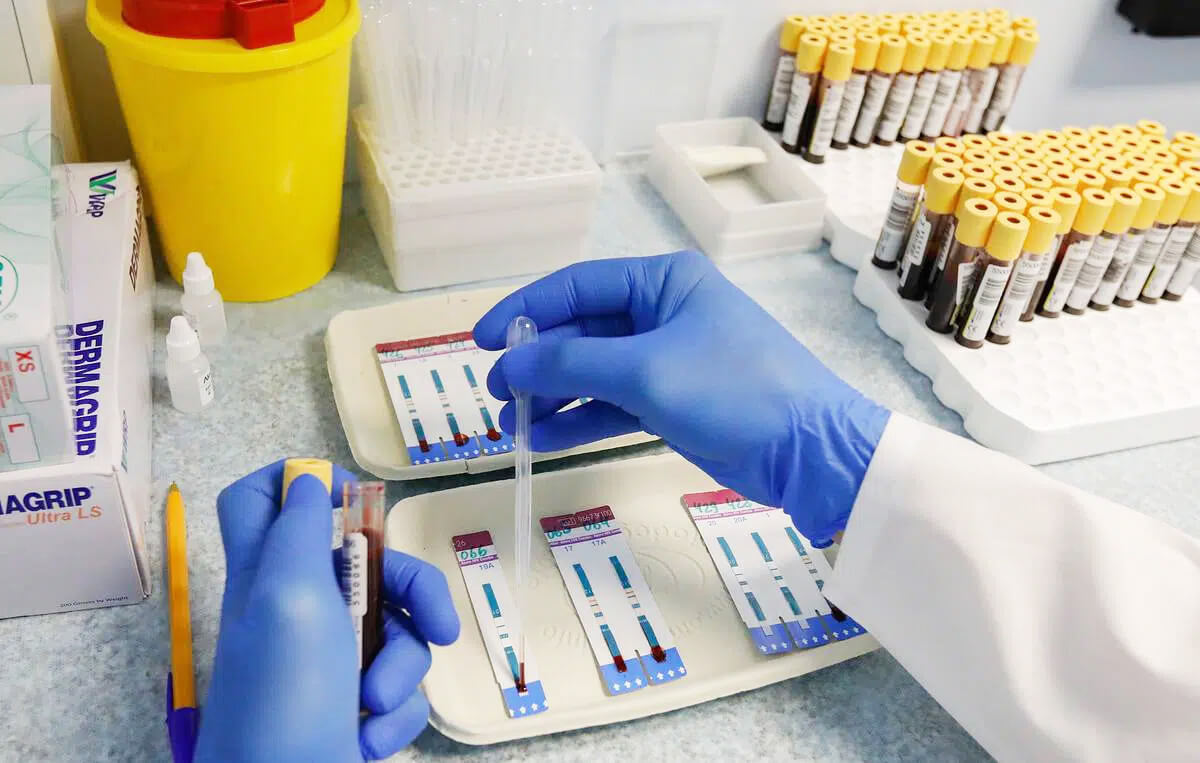Calls for Ukraine
Calls for Europe
Calls for USA


The human immunodeficiency virus (HIV) is one of the world’s most important health problems. To date, more than 40 million of the world’s population have died from this virus. Once in the human body, it may not manifest itself for a long time, so many people do not suspect that they are infected with this virus. At the same time, the immune system is gradually destroyed, the person becomes more susceptible to other infections, some malignant diseases may occur, and AIDS develops.
Early diagnosis of the condition and timely detection of infection are very important. If the human immunodeficiency virus is detected when it has not yet destroyed the immune system and has not caused multiple damage to the body, this will allow the condition to be brought under control and the use of special antiretroviral therapy will be more effective.
Doctors diagnose HIV/AIDS using the following methods:
Accordingly, a person who has thought about testing himself has questions: which test for HIV is better, which tests will be the most informative and reliable.
The easiest way to diagnose HIV/AIDS is with the help of rapid tests. You can do such an analysis right at the doctor’s office or at home and get the result immediately. Express tests can be of two types and differ in the biomaterial that is taken for analysis. For research, saliva or blood from a finger can be used. In the presence of HIV infection, specific antibodies are present in the blood and saliva, which the tests detect. All variants of rapid tests work on a similar principle and use antigen-antibody mechanisms to diagnose HIV/AIDS.

For this study, you need to buy a special disposable diagnostic kit. With a cotton swab from the kit, saliva is collected from the gum area. Then the stick is inserted into the test system, where a certain reaction occurs. And after 20 minutes you can see the result. One or more bars will appear on the scale, based on which it will be possible to determine whether your test result is positive or negative.
If blood is being tested, the kit includes a lancet that can be used to pierce a finger. Then a drop of blood is placed in the test system, and after 10-30 minutes (depending on the specific type of test), you can see the result.
This is a fairly accurate study and a false positive result is obtained infrequently. However, there is no 100% guarantee and there may be a false negative result. If express analysis showed the presence of HIV, additional laboratory AIDS diagnosis is recommended. If little time has passed after the alleged infection and the analysis showed a negative result, then it is also advisable to repeat the tests after a while.
ELISA means enzyme-linked immunosorbent assay. The material for this type of AIDS/HIV diagnosis is venous blood, so this analysis is done in the laboratory. This is a fairly sensitive method of research (about 90% accuracy), in which the antigen/antibody complex is determined.
If the result of the study is positive, then another more accurate test is additionally done – an immunoblot. This is an expensive method, but it gives an accuracy of 99.9%, so it is done as a clarifying diagnosis. In this case, antibodies to various proteins of the virus are determined.
This diagnostic method allows using the polymerase chain reaction (PCR) to determine the RNA of the human immunodeficiency virus. This is a more accurate method compared to enzyme immunoassay, however, there may also be errors. The peculiarities of the technique are that it is more informative in the early stages of infection. PCR diagnosis of AIDS can be done within a few weeks after the virus enters the body, which in some cases is very important. For example, it is used to diagnose HIV in newborns.

The accuracy of HIV tests can depend on various factors, one of which is their sensitivity. Sometimes a false positive result can occur during pregnancy, the presence in the body of antibodies similar to antibodies to HIV, and in some other cases.
An important role in the correctness of analyzes is played by the time when they are done. The fact is that after infection, antibodies do not begin to be produced immediately (from several weeks to several months after the infection has occurred). If you do tests in the first days after infection, the result will be negative. There is a specific “window period” for each type of analysis. It determines the period of time when the body already has a virus, but testing cannot yet detect it. So, for example, a sufficient level of antibodies in the blood or saliva to check the condition with express tests is developed in 25-90 days, and PCR diagnostics of AIDS / HIV can be done after 10 days. Therefore, in order to obtain reliable data, it is important to choose the right type of analysis.
Anyone can do an AIDS test. It is recommended to undergo AIDS/HIV diagnostics if:
Not so long ago, infection with the human immunodeficiency virus was seen as a death sentence. Now the attitude towards the disease has changed. There are methods that allow people with HIV to lead a normal life and control the manifestations of the disease. And the sooner the infection is detected, the more opportunities to choose an effective treatment and take the situation under control.
Traditionally, antiretroviral therapy has been used to treat human immunodeficiency, which must be used throughout life. However, other more promising treatments are emerging today. So the use of cell therapy for the infected is being actively studied. Cases have been recorded when stem cell transplantation led to long-term remission or even cure from the human immunodeficiency virus. The therapy used stem cells from a healthy donor whose genome contains a specific mutation in the CCR5 gene.
There are other studies that show that a patient’s genetically modified hematopoietic stem cells can be used. They have the ability to constantly produce protected immune cells that can attack the virus. This allows you to control HIV infection and keep the immune system working normally.
Medical consultants of MedTour will help you choose a clinic where you can make an accurate diagnosis in case of suspected HIV and choose an effective treatment at any stage of virus activation. We work with the best clinics that use the latest diagnostic and treatment methods, including cell therapy. Contact us by phone or via the feedback form to find out more about the possibilities of diagnosis and treatment in the best clinics!
Please rate the work of MedTour
